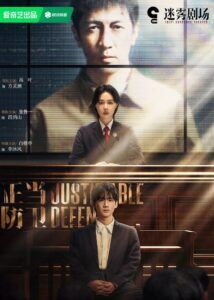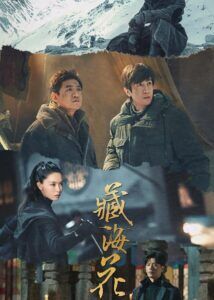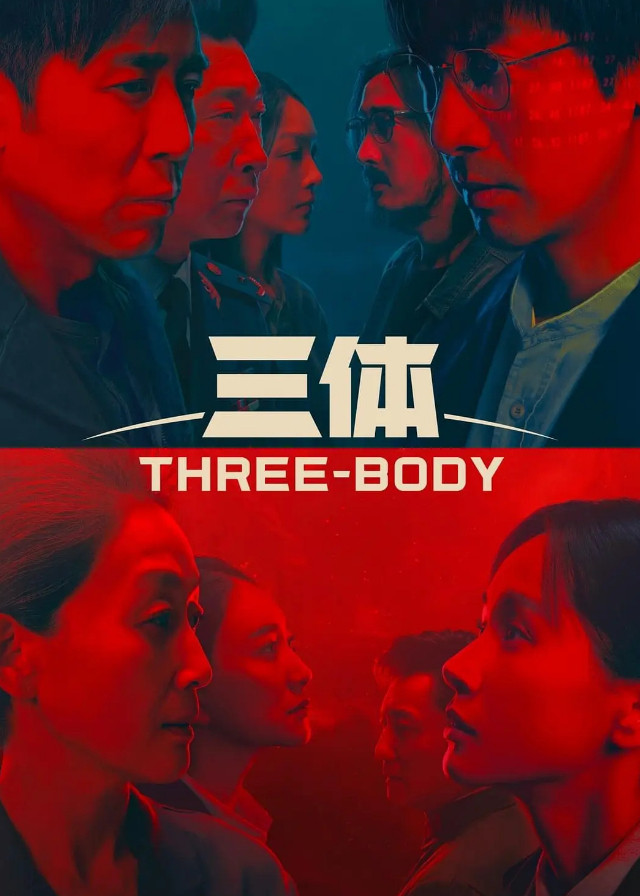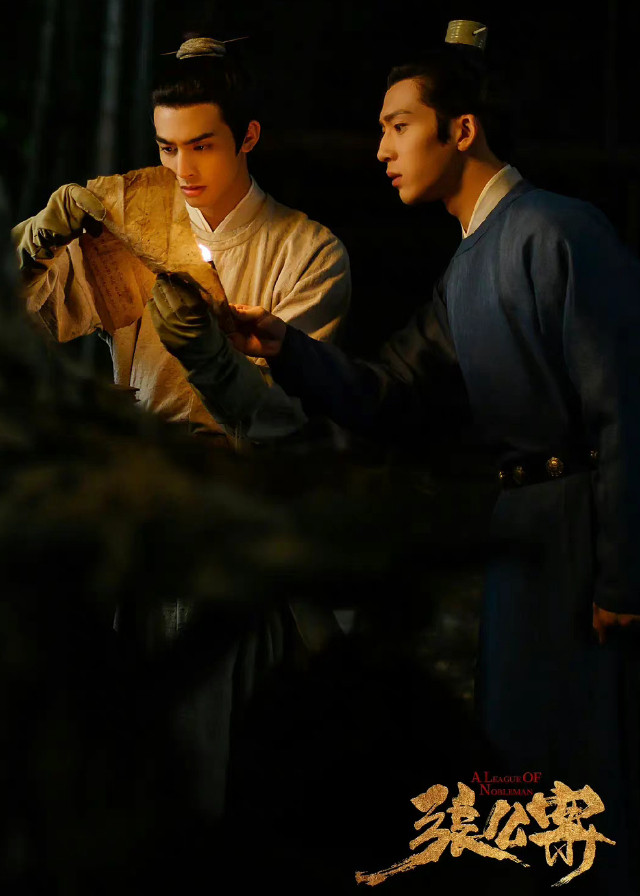Three-Body Episode 28 Recap
> Three-Body Recap
General Chang Weisi pressed Ye Wenjie for the final and most crucial piece of information: whether Trisolaris had only sent radio waves to Earth. Ye Wenjie conceded it was "almost" true. She explained that while the current Trisolaran civilization was capable of space travel at one-tenth the speed of light, a technological leap achieved decades ago, their massive interstellar fleet accelerated very slowly.
This meant that despite their potential maximum speed, they could only cruise at it for short periods before decelerating. Therefore, the journey to the solar system, which would take a smaller probe 40 years, would require 400 years for the full fleet. She also revealed that the fleet's propulsion relied on matter-antimatter annihilation, requiring a funnel-shaped magnetic field at the front of each ship to slowly collect antimatter particles from space.
Wang Miao and Ding Yi, after quick calculations, confirmed the 400-year estimate. Wang Miao then inquired about Ye Wenjie's "almost" comment. She clarified that their discussion of speed was within a specific context, implying that outside this context, even humans could accelerate certain objects to near light speed. Ding Yi interjected, suggesting she meant the macroscopic scale, as humans already accelerate microscopic particles to near light speed in high-energy accelerators. Ye Wenjie confirmed that they were indeed discussing micro-particles.
She revealed that six years prior, Trisolaris had accelerated two hydrogen nuclei, or protons, to near light speed from their triple star system, launching them towards the solar system. These two protons arrived at Earth two years ago. General Chang Weisi, astonished, questioned the purpose of sending only two seemingly insignificant protons, given that even a bacterium's cilium contained billions.
Ye Wenjie gravely declared that they were a "lock," designed to halt the progress of human science for the four and a half centuries until the Trisolaran Fleet's arrival. She reiterated Evans's previous statement that the day the protons arrived would mark the death of human science.
Chang Weisi angrily confronted her, asking why she hadn't revealed this to Yang Dong earlier, especially since Professor David of Gadayork University had committed suicide and the field of physics seemed to be collapsing. Ye Wenjie countered, questioning if everything she knew was truly the absolute truth. Following this revelation, Ding Yi stormed out, and General Chang Weisi concluded the interrogation. Later, Wang Miao visited Ye Wenjie, seeking answers about Yang Dong's death.
Ye Wenjie admitted she still had a question to answer for him regarding her daughter. She explained that Yang Dong, who avoided news, held a fundamental belief that despite the world's ugliness, harmony and perfection existed at the extremes of the micro and macro scales. The everyday world was merely foam on a perfect ocean.
However, the protons' interference with the accelerator experiments shattered this faith, making the everyday world appear beautiful while the micro and macro realms it encompassed might be chaotic and ugly. Though Yang Dong knew she could live without physics, her core belief collapsed, destroying half of her life. Wang Miao mentioned Shen Yufei's observation that Yang Dong tried to change, perhaps as a form of self-salvation, but still chose to end her life.
Ye Wenjie sorrowfully confessed that she had destroyed the other half of Yang Dong's life. She believed Yang Dong had accidentally seen her undeleted computer files, discovering the secret of her communication with Trisolaris. Yang Dong could never have imagined that her mother, with whom she had lived in such close companionship, was actually "another person," someone she couldn't even believe could exist.
Ye Wenjie concluded that these two revelations, which were essentially one catastrophic truth, constituted Yang Dong's entire life, and that she was, in essence, the one who destroyed it. She admitted that the outcome, where physics never truly existed, was irresponsible, yet she felt she had no other choice. Wang Miao then met with Ding Yi to discuss Yang Dong's death. Ding Yi acknowledged the many lingering doubts, including his own.
He found it illogical that Yang Dong, upon learning about the Trisolaran data and the protons interfering with experiments, would choose suicide, as this knowledge should have offered a new sense of hope or explanation for the anomalies in theoretical physics. He mused that Yang Dong must have seen something far beyond what they currently understood, but couldn't fathom what or how.
Wang Miao questioned the credibility of the two protons, fired from four light-years away, precisely locking down Earth's science, likening it to hitting a mosquito from Pluto. Ding Yi admitted he didn't know the full implications. He then shared his perspective on micro-particles, explaining that they resemble points but possess complex structures, similar to how a cigarette filter or activated charcoal, though three-dimensional, possesses a vast two-dimensional adsorbent surface area due to microscopic pores.
He elaborated that while God only granted the macroscopic universe three dimensions, eight higher dimensions are confined within the micro scale, existing as an eleven-dimensional space-time within fundamental particles. Ding Yi suggested that the true mark of a civilization's technological advancement in the universe lies in its ability to control and utilize these micro-dimensions. He posited that humanity, despite its progress from fire to computers and nanotechnology, still only manipulates micro-particles at a one-dimensional level.
This, he concluded, was why the Trisolarans viewed humans as "turkeys." Wang Miao pressed him on the relevance of this to the two protons, which seemed insignificant in terms of energy. Ding Yi, feigning ignorance and adopting the "turkey" persona, refused to elaborate further, telling Wang Miao that if he knew the full truth, he "wouldn't be able to sleep" and should instead "learn from Shi Qiang" and focus on his own responsibilities.
Back home, Wang Miao found himself staring blankly at a cigarette filter, lost in thought from Ding Yi's earlier analogy. His daughter, Doudou, repeatedly asked him to tell her a story, which he eventually did, about a magician defeating a dragon. Meanwhile, Shi Qiang, who had been exposed to significant radiation and was suffering from inexplicable nosebleeds, arrived at Wang Miao's home shortly after being discharged from the hospital.
He assured Wang Miao that he was fine, having been thoroughly decontaminated. Shi Qiang, having reviewed Ye Wenjie's interrogation records, admitted his confusion about the two protons and the Trisolarans' intentions. Wang Miao briefly explained their function. Shi Qiang observed a profound anxiety among everyone at the Battle Command Center, a feeling that human civilization had suddenly aged.
At the military meeting in the Battle Command Center, Shi Qiang revealed that he had insisted on bringing Wang Miao and Ding Yi along, believing Wang Miao to be potentially "a good knife for murder." General Chang Weisi confirmed that the war with the alien invaders had already begun. He clarified that while their immediate opponents were human "traitors" within the Earth-Trisolaris Organization (ETO), these could be seen as external enemies, and humanity had never faced such an adversary before.
Their urgent objective was to seize critical Trisolaran messages stored on the vessel "Judgment Day". The ship, an old oil tanker repurposed with complex internal structures and passages, was tracked legally sailing the Atlantic and was scheduled to pass through the Panama Canal in four days, presenting a unique opportunity.
The core challenge of the mission was to capture the ship and its data without allowing the enemy to destroy the information, a process that could take less than ten seconds for them to accomplish by simply firing at a hard drive. They had no inside agents or maps of the ship's interior.
Various conventional methods were proposed and dismissed: ball lightning (might be shielded, too slow), neutron bombs (not instantly fatal), nerve gas (too slow to spread), and concussion bombs (too small or too destructive). Shi Qiang, growing impatient and feeling ignored, was then challenged by Colonel Stanton, a seasoned special operations expert, regarding his qualifications.
Shi Qiang passionately defended his capabilities, drawing on his past military experience in reconnaissance and his current role as a criminal detective, asserting that for a delicate operation like this, an "out-of-the-box" approach was needed, one that criminals, as masters of such thinking, excelled at. Shi Qiang then presented his audacious "out-of-the-box" plan: two pillars would be erected on the banks of the Panama Canal, between which many parallel, thin filaments of Wang Miao's "Flying Blade" nanomaterial would be strung.
This material, Wang Miao explained, was a silk-like structure, one-tenth the thickness of a human hair, capable of cutting through iron. Wang Miao confirmed that existing supplies would likely suffice for the canal's narrowest point (150 meters wide) and the "Judgment Day"'s height (31 meters above water, 8 meters draft). He assured the group that even if hard drives or optical disks were sliced, the clean cuts made by the filaments would likely allow for data recovery.
With no other viable options, this plan was deemed the most feasible. The discussion then moved to the plan's details. Wang Miao suggested using flat sheets of nanomaterial as pads to protect the pillars where the incredibly thin, almost invisible Flying Blade filaments would be attached, also proposing fluorescent markers for visibility under special lights.
He noted that placing the filaments underwater would be difficult and possibly unnecessary, as the ship's lower sections contained engines, fuel, and ballast, not likely computer centers. He suggested a tighter net above the waterline would be more effective. The team considered placing the trap at one of the canal's three locks, which would perfectly accommodate the Panamax-sized "Judgment Day", allowing for shorter filaments and easier installation.
However, the locks were complex, and the ship's slow movement, pulled by electric locomotives on rails, meant heightened crew vigilance and a high risk of discovery. An alternative was the Bridge of the Americas outside the Miraflores Locks, using its abutments as pillars, but this would require an impractical amount of Flying Blade material, too much to manufacture in the limited time. Shi Qiang then suggested the narrowest point of the Gaillard Cut, about 150 meters wide.
Wang Miao calculated that with current nanomaterials, the minimum gap between filaments would be 50 centimeters. Shi Qiang then explained that the operation must occur during the day. When asked why, he reasoned that at night, sleeping crew members lying or crouching down could easily pass through the 50-centimeter gaps undetected, whereas during the day, whether standing, squatting, or sitting, the gaps would effectively slice them. His chilling logic prompted someone to call him a "devil."















